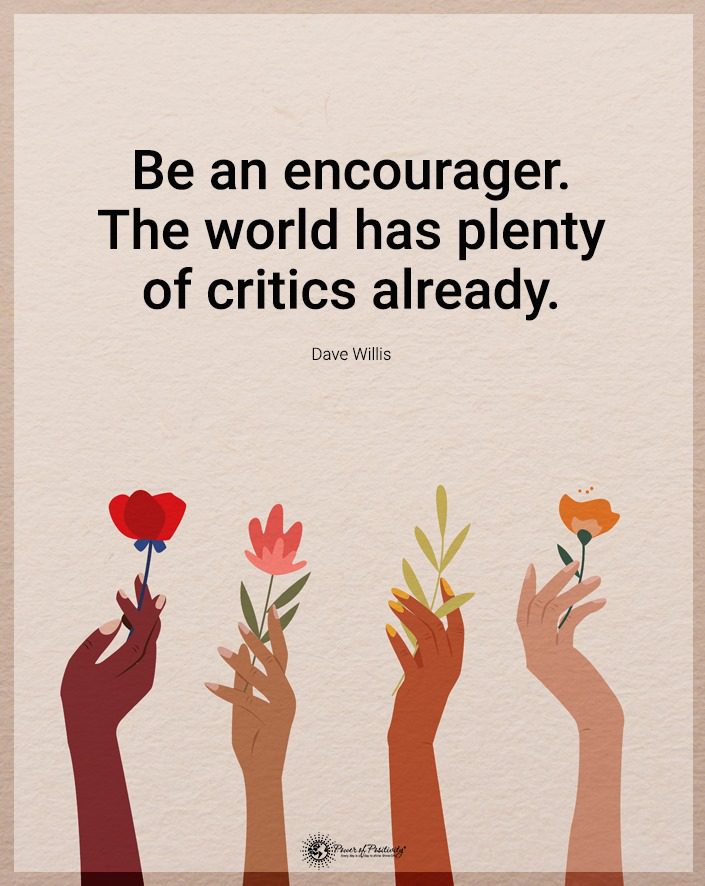Read about the key causes of ankle and foot swelling.
Imagine this: You’re at the end of a long day, your feet feel twice their normal size, and you’re wondering why. Swollen feet (perhaps even impacting the ankles) aren’t just uncomfortable—they can signify deeper health issues.
But here’s a little bit of good news: understanding what causes your feet to swell can be the first step toward relief, whether it’s from a tough workout session or an underlying medical condition. This knowledge puts you in control of your health and well-being.
Swollen feet are a common health concern that affects many individuals, leading to discomfort and reduced mobility. Based on information shared recently by Harvard Health, this article provides an in-depth exploration of the twelve primary causes of this condition, supported by medical insights. Understanding these causes of swollen feet is crucial for effective management and treatment.
What Causes Swollen Feet?
Let’s dive into some common culprits and learn how to deflate the discomfort and get back on your feet.

1 – Heart Problems
Heart failure is a condition that occurs if the heart cannot pump blood efficiently, leading to fluid accumulation in the body, particularly in the lower extremities. Symptoms often include tiredness, shortness of breath, and swollen ankles or feet.
Managing heart failure effectively requires a comprehensive approach that includes both medical and lifestyle interventions:
- Medication: Diuretics are commonly prescribed to help the body eliminate excess fluid, reduce swelling, and ease the strain on the heart.
- Dietary Modifications: Reducing salt intake is crucial as excess salt consumption causes water retention and worsening heart failure symptoms.
- Regular Physical Activity: Engaging in moderate exercise, as advised by your doctor, can improve cardiovascular health and overall well-being.
Together, these strategies help control symptoms and enhance the quality of life for individuals with heart failure.
2 – Kidney Disease
Kidney disease affects the body’s ability to clear excess fluid and waste. This inefficiency can lead to fluid retention, swelling in the feet and ankles, and other symptoms like fatigue and changes in urine output. Treatment focuses on addressing the underlying kidney issues with medication, dietary changes, and, in severe cases, dialysis.
3 – Liver Disease
Liver disease, particularly cirrhosis, impairs the liver’s ability to produce albumin, a protein that helps maintain blood volume and pressure. Without sufficient albumin, fluid leaks into surrounding tissues, causing swelling.
For maintaining liver health and managing related symptoms, consider these key strategies:
- Dietary Adjustments: Eat a balanced diet rich in fruits, vegetables, and whole grains. Conversely, try eliminating or limiting high-fat and sugary foods.
- Avoid Alcohol: Reduce or eliminate alcohol consumption to lessen the burden on your liver.
- Medication Management: Use medications judiciously as prescribed by a healthcare professional and discuss potential liver-friendly options.
These measures are crucial for supporting liver function and controlling symptoms associated with liver disease.
4 – Venous Insufficiency
Venous insufficiency is when the veins have difficulty sending blood from the legs back up to the heart. This issue often leads to blood pooling in the legs, visible as swollen feet.
Treatments include:
- Wearing compression stockings.
- Elevating the legs, and in some cases.
- Surgical interventions to improve blood flow.
5 – Deep Vein Thrombosis (DVT)
DVT is a severe condition where a blood clot forms in a deep leg vein. It can cause localized swelling, pain, and redness. If left untreated, clots can travel to the lungs, causing a life-threatening pulmonary embolism. Treatment often involves anticoagulant medications to prevent further clotting.
6 – Phlebitis
Phlebitis involves the inflammation of a vein, often in the leg, which can cause swelling, redness, and pain. It may occur on its own or as a complication of DVT. Treatment typically includes anti-inflammatory medications, heat application, and compression.
7 – Lymphedema
Lymphedema refers to swelling caused by lymphatic system blockages. This can result from surgery, infection, or cancer treatments that damage or remove lymph nodes. Management includes massage, compression garments, and avoiding infections.
Careful skin care is essential for preventing infections, especially in conditions like lymphedema, where the risk is higher. Here are some effective strategies:
- Gentle Cleansing: Wash the skin daily with a mild cleanser and lukewarm water to remove bacteria and prevent infections.
- Moisturizing: Apply moisturizer to prevent dryness and cracks that can harbor bacteria.
- Protective Measures: Use protective coverings or bandages on minor wounds to shield them from infectious agents.
- Regular Inspection: Regularly inspect the skin for any signs of redness, swelling, or breakage, which could indicate an infection.
These practices help maintain the integrity of the skin, thus reducing the risk of infections that can complicate existing health conditions.
8 – Pregnancy
The body produces extra fluids and blood during pregnancy to support the baby’s development. Thus, it can lead to swelling in the legs, ankles, and feet. During pregnancy, it’s essential to monitor for swelling to avoid complications like preeclampsia.
For pregnant women, managing swollen feet involves gentle, pregnancy-safe strategies:
- Regular Movement: Engage in light exercises such as prenatal yoga or short walks to improve circulation and reduce fluid buildup.
- Proper Hydration: Increase water intake to help maintain a healthy fluid balance, which can counteract swelling.
- Elevation of the Feet: Whenever sitting or resting, elevate the feet above the level of the heart to encourage fluid flow back towards the upper body, decreasing swelling in the lower extremities.
These steps not only help alleviate discomfort but are also safe and beneficial during pregnancy.
9 – Infection
Infections in the foot or ankle, including cellulitis or osteomyelitis, can cause significant swelling and pain. These conditions require immediate medical attention and are treated first with antibiotics and later surgery to remove infected tissue, if necessary.
10 – Injury
Injuries such as sprains, fractures, or Achilles tendonitis can lead to much swelling in the affected area.
The RICE method is a well-established treatment approach used to manage swelling and pain, especially soon after an injury. Here’s how it works:
- Rest: Avoid putting weight on the swollen area to prevent additional injury and allow the healing process to begin.
- Ice: Apply ice packs to the swollen area for fifteen to twenty minutes every few hours to reduce inflammation and numb the pain.
- Compression: Use elastic bandages or compression garments to help reduce swelling by preventing fluid accumulation.
- Elevation: Keep the swollen area, such as the foot or ankle, elevated above the level of your heart. This position helps reduce swelling by allowing fluids to flow away from the affected area back toward the central circulatory system.
These steps can significantly alleviate symptoms following an injury’s initial phase, promoting recovery and reducing discomfort.
Follow-up care may include physical therapy and a gradual return to activity.
11 – Side Effects of Medications
Certain medications, including blood pressure drugs, steroids, and anti-inflammatory medications, can cause swollen feet as a side effect. If swelling occurs, it’s important to call a healthcare professional, who might adjust the dosage or switch medications.
12 – Prolonged Standing or Sitting
Prolonged periods of standing or sitting may decrease blood circulation, leading to swollen feet. Regular breaks to stretch and move around, along with supportive footwear, can significantly reduce swelling.
How Will Doctors Diagnose What’s Causing the Swelling?
To diagnose the cause of swollen feet, doctors typically start the process of diagnosing with a thorough medical history and physical examination. They may ask about symptoms, medical history, and any recent activities that could contribute to swelling. Diagnostic tests might include:
- Blood tests: To check for kidney function, liver function, and signs of infection or inflammation.
- Urine tests: To screen for kidney disease.
- Ultrasound or Doppler imaging: To assess blood flow and look for blood clots in the legs.
- X-rays or other imaging: To detect bone fractures or abnormalities.
These diagnostic tools help doctors determine the underlying cause of the swelling and guide appropriate treatment.
Caring for Swollen Feet and Ankles at Home
Here are five at-home care strategies you can try when you initially notice swollen feet:
- Elevation: Prop your feet up above the level of your heart to help reduce swelling.
- Compression: Wear compression socks or stockings to help encourage fluid return toward the heart.
- Hydration: Increase your water intake to help flush your system and reduce salt concentration.
- Reduce Salt Intake: Lowering salt in your diet can help prevent fluid retention.
- Exercise: Light exercise can play a crucial role in pumping fluid back to your heart from your legs. So, take the initiative and try a short walk, light yoga, or some gentle stretches to get the blood pumping properly.
These strategies can make a significant difference in first aid for swollen feet.
When Is it Time to See a Doctor About Swollen Ankles or Feet?
If these strategies don’t alleviate the swelling or if the swelling worsens over a few days, it’s crucial to consult a doctor. Persistent or increasingly severe swelling could indicate a severe health issue and should be evaluated by a professional. Remember that your health is important, and seeking medical attention when needed is a responsible decision. If there’s no improvement in swelling after a few days of home treatment or immediately if the swelling is accompanied by other symptoms like pain, redness, or fever, don’t hesitate to seek medical attention.

Final Thoughts on Knowing What Causes Swollen Ankles or Feet
Understanding the many causes of swollen feet can help individuals recognize when it’s a minor issue and when it signals a serious health concern. Consulting with healthcare professionals is essential when you have any persistent or severe swelling. Managing underlying conditions and adopting preventive measures can significantly improve your well-being despite this uncomfortable condition. Remember, there is hope and a path to a better, more comfortable life.



















